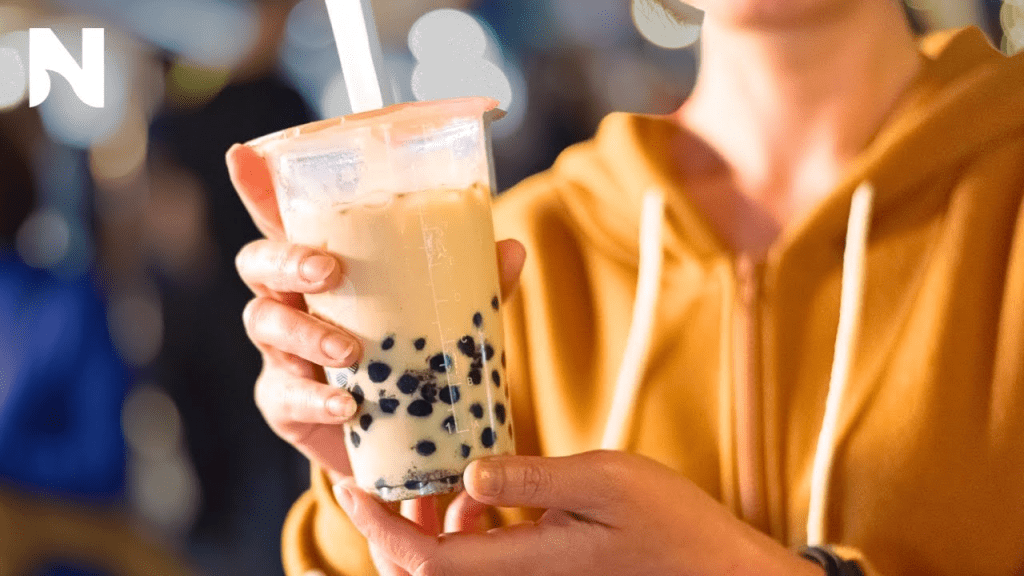In a shocking medical case, a 20-year-old woman in Taiwan had 300 kidney stones surgically removed after reportedly preferring bubble tea over water. This unusual case has sparked attention, highlighting the severe health risks that come with dehydration and poor dietary choices. The young woman, known as Xiao Yu, was admitted to the hospital after suffering from extreme back pain and fever, symptoms that led to the discovery of an astonishing number of kidney stones.
Let’s dive into the details of this fascinating story, understand how bubble tea contributed to her condition, and explore what steps we can take to avoid such health complications.
The Alarming Discovery: 300 Kidney Stones in a Young Woman
Xiao Yu’s ordeal began with intense back pain and fever. After being rushed to Chi Mei Medical Center in Tainan, Taiwan, doctors performed an ultrasound and were stunned by what they found—her kidneys were filled with hundreds of small stones. The stones, which resembled “small steamed buns,” according to reports, ranged in size from 5mm to 2cm, making the case one of the most extreme the medical team had ever encountered.

The medical team immediately decided that surgery was necessary to remove the stones and prevent further complications. A CT scan confirmed the exact number of stones, and surgery was performed to rid Xiao of the 300 stones lodged in her kidneys.
How Bubble Tea Contributed to the Kidney Stones
Bubble tea, also known as boba tea, has become increasingly popular around the world for its sweet flavor and chewy tapioca pearls. However, this trendy drink might be more harmful than you think, especially when it replaces water as a primary source of hydration.
In Xiao Yu’s case, her habit of drinking bubble tea instead of water likely contributed to the formation of the kidney stones. Kidney stones form when the urine becomes concentrated with minerals, allowing those minerals to crystallize and clump together. Dehydration, often caused by not drinking enough water, is a major risk factor for the development of kidney stones. With bubble tea being full of sugar and lacking the hydrating properties of water, it’s no surprise that Xiao Yu’s kidneys suffered.
The Role of Dehydration in Kidney Stone Formation
Dehydration plays a critical role in the development of kidney stones, particularly during the hot spring and summer months. When your body doesn’t get enough water, your urine becomes more concentrated, creating the perfect environment for minerals like calcium and oxalate to form crystals. Over time, these crystals can grow into stones, leading to painful complications.
Dr. Lim Chye-yang, the urologist who performed Xiao Yu’s surgery, emphasized that kidney stone cases tend to spike during warmer months when people are more prone to dehydration. The lesson here is simple: staying properly hydrated is key to avoiding kidney stones.
Kidney Stones: A Growing Health Concern
While Xiao Yu’s case is alarming due to the sheer number of stones, kidney stones are not an uncommon health issue. In fact, kidney stones are more frequently found in men, with men being three times more likely than women to develop these painful stones.
Typically, kidney stones occur in individuals between the ages of 50 and 60, but this case highlights that younger people can also be at risk—especially if they neglect proper hydration and maintain poor dietary habits. With modern diets rich in salt, calcium, and protein, the risk of kidney stones has been rising globally.
Preventing Kidney Stones: Hydration is Key
The best way to prevent kidney stones is simple: drink plenty of water. Doctors recommend consuming at least 10 glasses of water a day to keep your urine diluted and to flush out any potential crystal-forming minerals before they can clump together.

Apart from staying hydrated, there are several other steps you can take to reduce your risk of developing kidney stones:
- Limit your salt intake: Too much salt in your diet can increase calcium levels in your urine, which contributes to stone formation.
- Eat a balanced diet: Include plenty of fruits and vegetables in your meals. These foods are rich in magnesium and potassium, which help reduce the risk of stones.
- Control your protein consumption: High levels of animal protein can increase uric acid levels in the body, another factor that contributes to stone formation.
- Get enough calcium: Contrary to popular belief, avoiding calcium can actually increase your risk of kidney stones. Make sure you get the recommended amount of calcium in your diet, but don’t go overboard.
The Aftermath: A Full Recovery for Xiao Yu
Fortunately, after undergoing surgery to remove the kidney stones, Xiao Yu’s condition stabilized, and she was discharged from the hospital. The successful procedure not only relieved her pain but also provided her with a second chance to improve her lifestyle choices.
Doctors hope that her case will serve as a cautionary tale for others who might overlook the importance of staying hydrated. While bubble tea and other sugary drinks might be tempting, they shouldn’t replace the essential hydration that water provides.

Conclusion: The Importance of Healthy Hydration Habits
Xiao Yu’s story is a stark reminder that our dietary choices and hydration habits have a direct impact on our health. While bubble tea might seem like a harmless treat, overindulging in sugary drinks and neglecting water can lead to serious health problems, as Xiao Yu discovered the hard way.
The key takeaway? Stay hydrated, limit your intake of sugary beverages, and make sure your diet is balanced to keep your kidneys—and the rest of your body—in optimal condition. Don’t let a love for bubble tea or other beverages come between you and your health!


